Bandung government benefited from the public transport best practice knowledge sharing sessions
In October and November the Global Future Cities Programme (GFCP) Bandung intervention conducted a series of knowledge sharing sessions to highlight other cities' success stories of public transport transformation with focus on improved accessibility.
The sessions were designed to guide Bandung City government in understanding how other cities addressed their challenges and developed on the opportunities, while pursuing transformative growth in public transport. The aim was to provide a clear vision for developing sustainable practices and exploring further measures for improving services in Bandung.
These series consisted of four sessions, and each featured the key speakers from relevant organisations. The first session was facilitated by Daud Joseph, commissioner of PT Steady Safe Indonesia and Welfizon Yuza, Finance Director of PT Transjakarta.
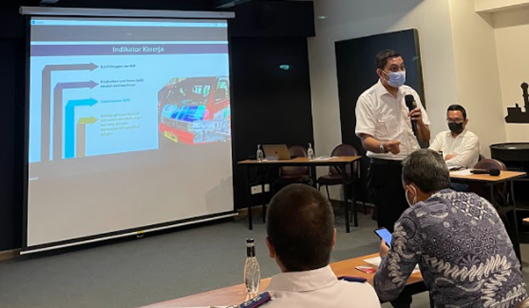
Session 1: Mr. Daud Joseph, Commissioner of Steady Safe Indonesia sharing insights on successful integration between TransJakarta and MikroTrans.
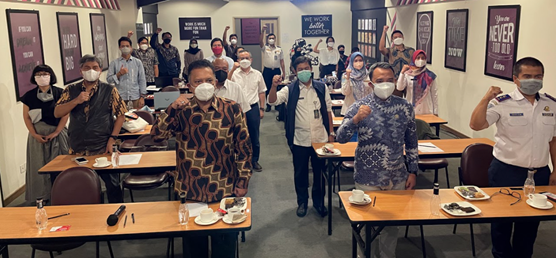
Group photo with key stakeholders post-knowledge sharing session 1
The second session was in cooperation with Semarang City’s Transportation Agency and coordinated by Mulyadi, Head of the Public Transportation Division and Donal D.H, Finance Manager of TransSemarang.
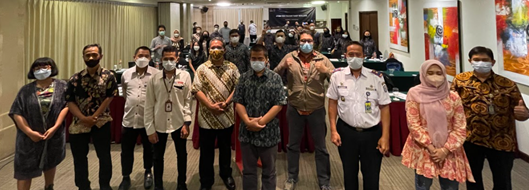
Post knowledge sharing session 2, which highlighted the success story of Trans Semarang establishment, group photo
The DKI Jakarta's Transport Agency led the third session through their Head of Road Transportation Unit, Yayat Sudrajat.
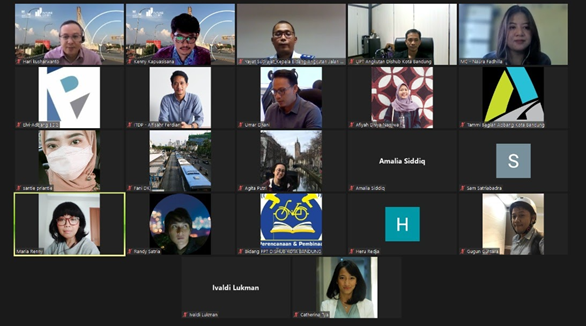
Screen capture of virtual knowledge sharing session 3 on success stories of DKI Jakarta's transport agency
Finally, Chandra Sugarda, Gender Equality and Social Inclusion Lead for the GFCP Indonesia team, along with GAUN (National Public Accessibility Organisation) Director, David Tjahjana, facilitated the last session.
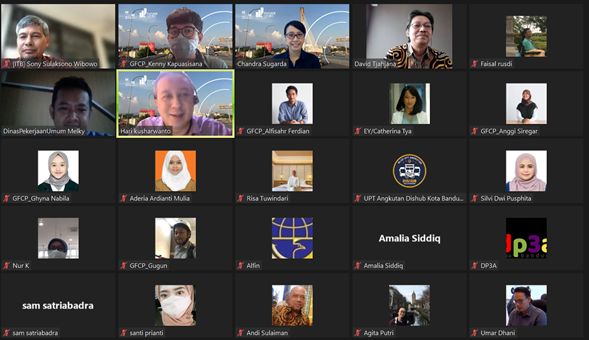
Screen capture of virtual knowledge sharing session 4 on ‘accessibility for urban transport for all groups’, moderated by the Gender Equality and Social Inclusion lead for the GFCP Bandung team, Chandra Sugarda
Attending the sessions were key stakeholders from the Bandung City government, including representatives from the Transport Agency, Planning Agency, Public Transport Service Unit, Public Works Agency, and City’s Secretariat Office.
The key takeaways are the importance of institutional coordination in providing accessibility for all groups, collaboration with vulnerable groups in infrastructure development plans, accessibility over aesthetic design, and the correlation between intermodal transfers location with accessibility. These recommendations, aligned with the Bandung programme intervention, aimed at strengthening the importance of accessible infrastructure.
The following are the summaries of the sessions:
|
1st Sharing session Integration of urban public transport (Transjakarta and Mikrotrans) |
2nd Sharing session Strategy and process of urban public transport integration - Semarang |
|
|
|
3rd Sharing session Strategy and process of urban public transport integration – DKI Jakarta |
4th Sharing session Accessibility of urban public transport for all, including the marginalised groups |
|
|
Partner
Mott MacDonald (MM)
Country
Republic of Indonesia
City
Bandung
Themes
Mobility
Author(s)
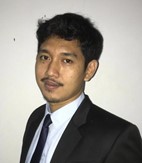
Kenny Kapuasiana
Assistant Project Manager for Bandung Integrated Public Transportation System Intervention, Global Future Cities Programme